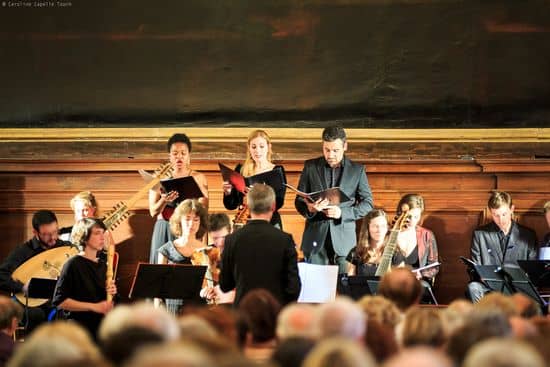Divertissements de Charpentier
Directed by Jos Houben & Emily Wilson
Charpentier is a paradoxical subject. We know his work very well with his twenty-eight magnificent volumes of scores, copied by his own hand; at the same time, this is probably only the tip of the iceberg… Then, the main milestones of his career are known, but nothing is known about his training. He is recognized today as the greatest composer of sacred music of the Grand Siècle, and at the same time… at the same time what else?
One must pass by the sublime pages of leçons de ténèbres, motets for the Guise, psalms for the Jesuits, to come across a few more truculent pages, and realize that throughout his life, our Marc-Antoine Charpentier was not indifferent to humor. Is it for this reason that Molière spotted this young composer, just back from Italy, in the early 70s (1670)? The great Molière, who had just fallen out with the other Baptiste (Lully), who had pulled all the Louis-Quatorzian wool over his eyes, was looking for a talented musician who would be able to turn a few notes on the verses of the interludes that intersperse the acts of his comedies. Thus, the young Charpentier joined the troupe of the French Comedians. Of the works born of this collaboration, the most famous is Le Malade Imaginaire. Many others have come down to us, revealing all the unbridled fantasy that the public of the time expected. Humor was transformed from one century to the next: it was potty and frank, and the public laughed at it; it became politically incorrect and is now read in the second degree.
Throughout his life, Charpentier showed a frank, subtle, wholehearted sense of humor, taking with him those who heard him; this sense of derision still reveals his true nature: visionary, eminently subtle, profound and definitely brilliant.
♢
PROGRAM
Les Plaisirs de Versailles
La Comtesse d’Escarbagnas / La la Bonjour
Ouverture de la Comtesse
Lalalala bonjour
O la belle symphonie
Le Sicilien
Ouverture
Beauté dont la rigueur
Voulez-vous beaux bizarre
Les Plaisirs de Versailles
Ouverture
Scène 1 – La Musique
Scène 2 – La Musique, la Conversation et le Chœur
Scène 3 – Un des Plaisirs
Scène 4 – Le Jeu et les susdits
Le Malade imaginaire
Polichinelle & fantaisie des interruptions
Les Arts florissants
♢
